Credit Cards for Beginners: Building Credit with the Right Choice

Credit cards can be a powerful financial tool when used wisely. For beginners, they not only provide a convenient way to make purchases but also serve as a means to build credit history. A solid credit score is crucial for obtaining loans, mortgages, and even rental agreements in the future. Understanding how credit cards work and how to manage them responsibly is essential for young adults stepping into the world of finance.
This guide will explore fundamental concepts about credit cards, explain why they are essential for building credit, and provide useful tips for beginners on making the right choices. By mastering these basics, you can pave the way toward a healthy financial future and make informed decisions when it comes to credit.
Understanding Credit Cards
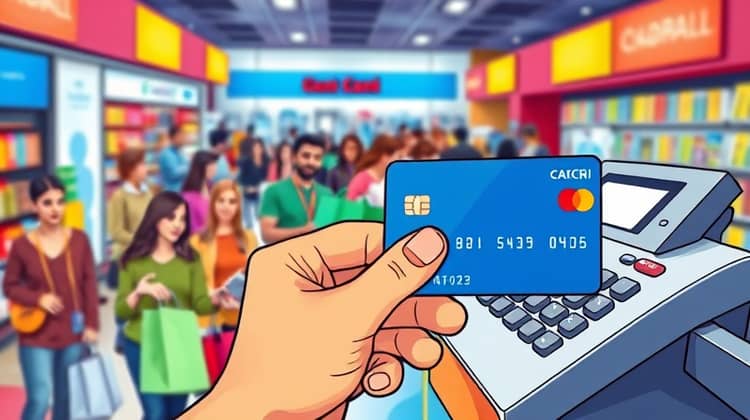
A credit card is a financial tool that allows you to borrow money from a bank or financial institution to pay for goods and services. Each month, you receive a statement that outlines your spending, minimum payment due, and payment due date. If you pay your balance in full by the due date, you avoid interest charges, making credit cards a convenient way to manage expenses without incurring debt.
Credit cards come with a credit limit, which is the maximum amount of money you can borrow. Responsible use of credit cards can help improve your credit score; this score reflects your creditworthiness and is used by lenders to assess the risk of lending you money. Building good credit is vital because it opens up opportunities for larger loans and better interest rates in the future.
Why Credit Cards are Important for Building Credit

Having a credit card, as part of a diverse credit portfolio, is essential for building a strong credit score. This score provides lenders with insights into your financial behavior, including your repayment history and credit utilization. Higher credit scores typically result in better terms on loans and credit in the future.
- They establish a credit history and report to credit bureaus.
- Payment history on a credit card (on-time payments) significantly affects your credit score.
- Utilization ratio: Keeping your balances low relative to your limits shows responsible usage.
- Mix of credit: A credit card adds an installment to your credit mix, which can positively impact your score.
By using credit cards wisely, you can build a positive credit history, which can also provide leverage in negotiations for future financial products. The ability to showcase reliable payment habits is attractive to lenders.
Types of Credit Cards for Beginners
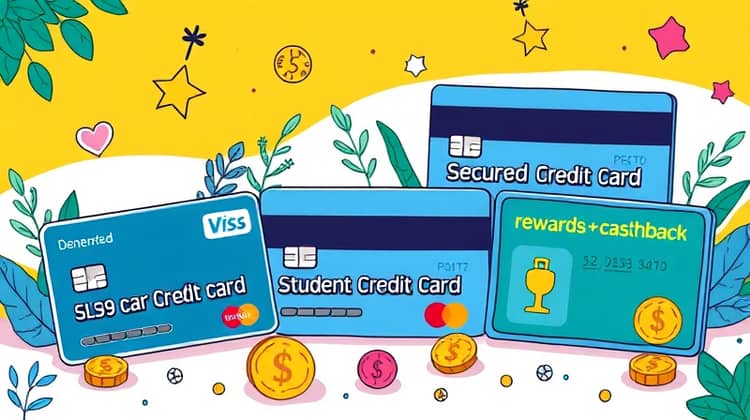
When starting with credit cards, beginners can choose among several types, each tailored to suit different financial situations and goals.
- Secured credit cards: Require a deposit that serves as your credit limit, ideal for those with no credit history.
- Student credit cards: Designed for college students to build credit while managing education expenses.
- Rewards credit cards: Offer points or cashback on purchases, suitable for individuals who pay off their balance in full each month.
Choosing the right type of credit card is crucial for beginners to build their credit and align with their financial goals.
How to Choose the Right Credit Card

Selecting the right credit card involves evaluating your spending habits, financial goals, and understanding the terms of different credit card offers. Choose a card that aligns with your lifestyle and will help you build credit effectively.
It’s essential to compare various credit cards available to determine the best fit for you. Look for benefits that match your behavior, such as low APR, rewards programs, and no annual fees.
- Check the interest rates and fees associated with each card.
- Understand the rewards and benefits offered, if applicable.
- Consider introductory offers like 0% APR for the first few months.
- Look for any additional perks such as travel insurance or purchase protection.
Taking time to research and choose wisely can significantly impact your credit-building journey and overall financial health.
Tips for Using Credit Cards Responsibly

Using credit cards responsibly is essential for maintaining a healthy credit score and avoiding debt. The following tips will help you maximize your credit card's benefits while minimizing risks.
- Always make your payments on time to avoid late fees and interest charges.
- Try to pay your balance in full each month to maintain a healthy credit utilization ratio.
- Keep track of your spending to avoid going over your budget, especially if it is tight.
- Set automatic payments for at least the minimum amount due to prevent missed payments.
By adhering to these guidelines, you can establish good credit habits that will serve you well in the long term.
Common Credit Card Terms
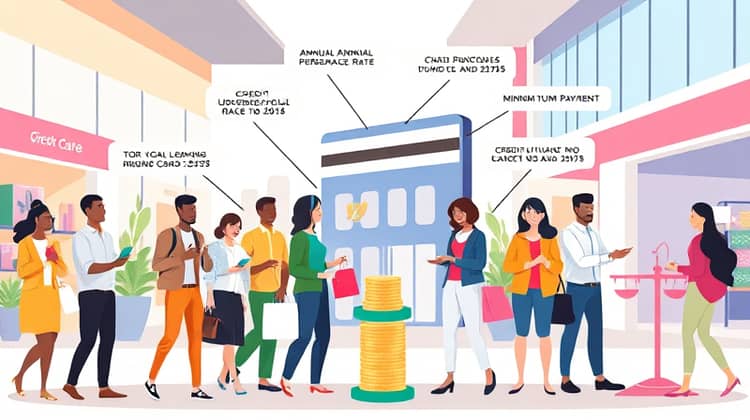
Understanding credit card terminology is critical for beginners to navigate their credit journey effectively. Familiarity with common terms can help you make informed decisions when purchasing and managing payments.
Here are some essential credit card terms to know:
- Annual Percentage Rate (APR): The annual rate charged for borrowing, expressed as a percentage.
- Credit Limit: The maximum amount you can borrow on your credit card.
- Minimum Payment: The smallest amount you can pay to avoid penalties, typically a percentage of your total balance.
- Credit Utilization Ratio: The ratio of your current credit card balance to your credit limit, expressed as a percentage.
A clear understanding of these terms will empower you to use your credit card more effectively and responsibly.
The Application Process
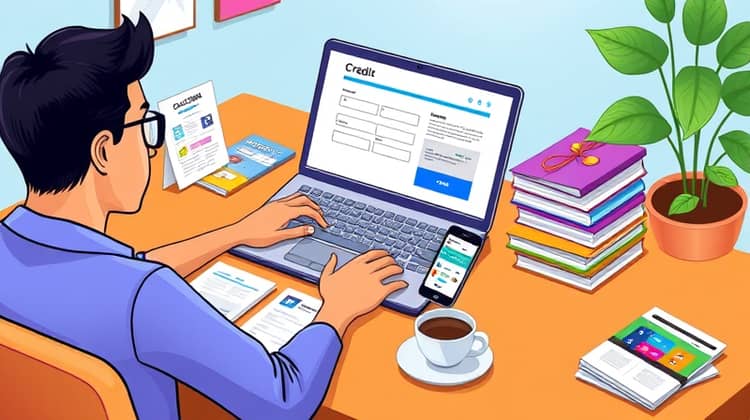
Applying for a credit card can be a straightforward process if you know what to expect. It begins with completing an application form, which typically includes personal and financial information.
Most lenders assess your creditworthiness based on your credit score, income, and financial history.
- Check your credit score before applying to understand your standing.
- Research different credit cards available for beginners and select the one that best fits your needs.
- Gather necessary documents like proof of income and identification before starting your application process.
Knowing the application process will help you prepare so you can secure the best possible card for your financial situation.
Monitoring Your Credit

Once you have a credit card, it's essential to monitor your credit regularly. You can do this by accessing your credit report and checking your credit score periodically. Regular monitoring helps you understand how your actions impact your credit score and provides insight into potential fraudulent activity.
Many credit card companies also provide free access to your credit score, along with helpful tools to track your spending and manage your credit better.
When to Use Credit Cards
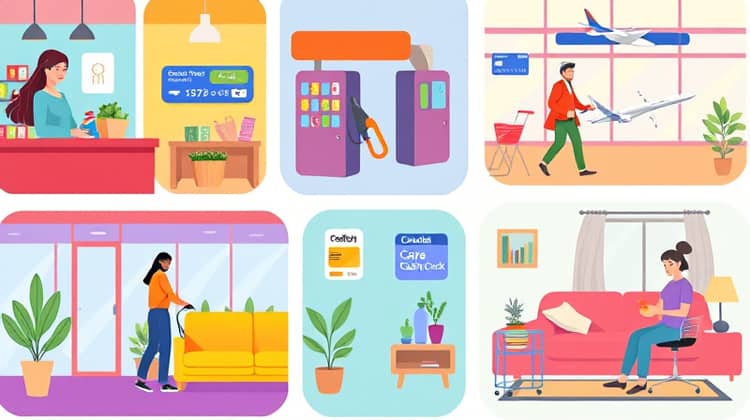
Knowing when to use your credit card is crucial to maintaining a healthy credit score. It's best to use your card for purchases you can afford to pay off promptly, to avoid accruing high-interest debt. Additionally, utilizing your credit card responsibly can enhance your credit score over time by demonstrating reliable usage.
Here are a few situations when it is beneficial to use your credit card:
- For regular monthly expenses that you can pay off immediately, such as groceries and gas.
- To build rewards points, cashback, or miles for future use.
- During travel, because credit cards often provide additional benefits like insurance or fraud protection.
- For online purchases, which can be safer with a credit card than debit.
Understanding the appropriate times to use your credit card can help you leverage its benefits, supporting your credit-building efforts effectively.
Conclusion

In conclusion, credit cards can be a valuable tool for beginners to build credit when used wisely. By understanding the different types of credit cards available, their financial impact, and how to manage them responsibly, you can pave the way for a successful financial future.
Remember that building credit is a gradual process that requires discipline, good practices, and monitoring. With the right approach, your credit card can help enhance your creditworthiness, leading to various opportunities down the line.






